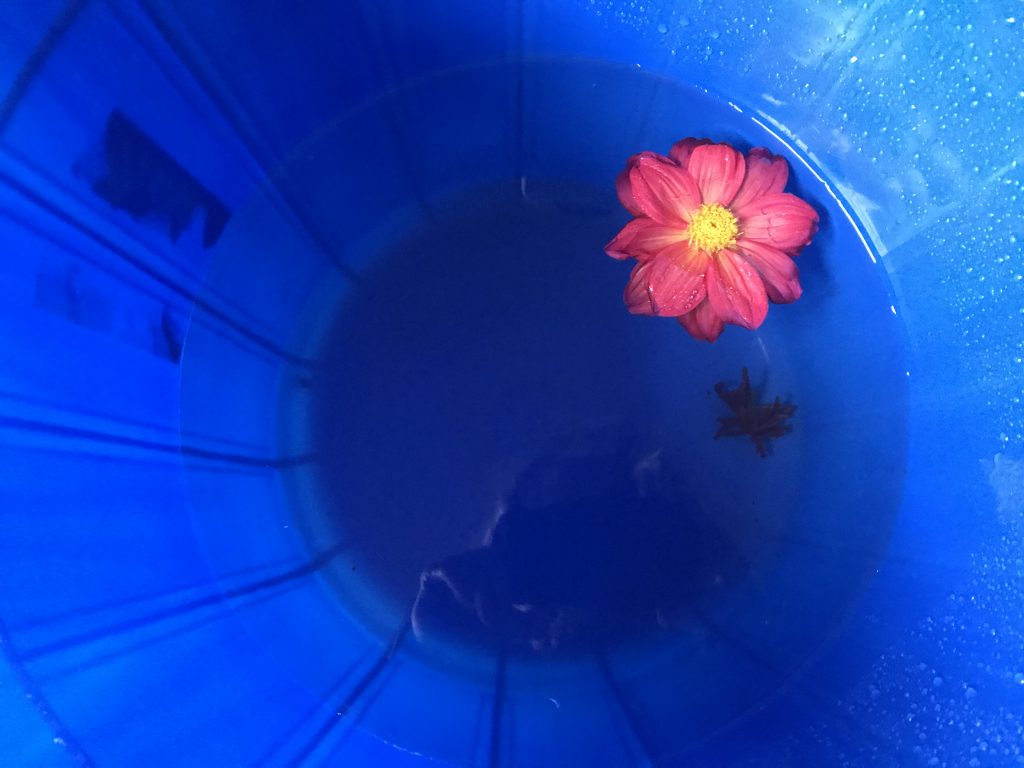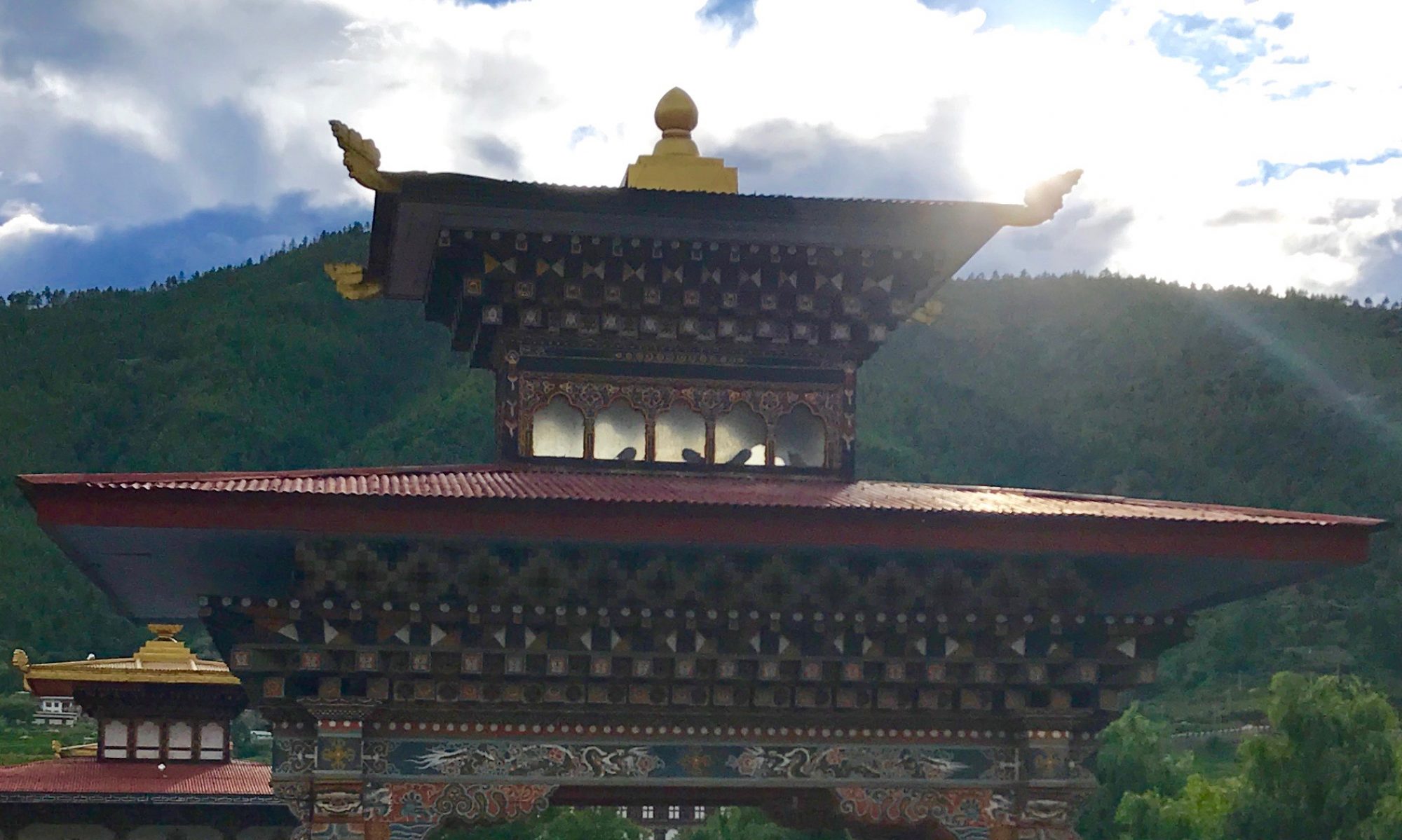I think we snorted the first time we heard the name of the holiday. Really? There are a lot of rainy days here: what makes one particularly blessed? Well, the answer is more complicated than we anticipated. A little googling gave us this report:
“Blessed rainy day, locally known as Thrue-Bab, is truly an indigenous Bhutanese festival (celebrated only in Bhutan). It is believed that on the particular day, the rain is thought to be sanctified by the cosmic Buddha Mahavairocana. And therefore, taking a cleansing bath from the divine rain water collected overnight is thought to purify all defilement and bad karma.”
Blessed Rainy Day also marks the end of farming season and start of harvest months: in eastern Bhutan, it’s treated as a New Year’s celebration. People call it “the gateway to other celebrations” because Blessed Rainy Day is the first festival in the Bhutanese calendar.
“It is said that, at the beginning of time, the universe was evolving and the sun, the moon and a planet named Rikhi also called (Thruelkar) were formed simultaneously with other solar systems. Planet Rikhi is said to be composed of water crystal jewel (Norbu Chushel). It is situated at half the height of Mount Meru (Rirab Lhuenpo), which is the center of the universe according to Buddhism. At that same height on Mount Meru, there is a huge statue of Buddha Nampar Nangdzay (Vairocana), and the crown of the statue is composed of the same material as that of planet Rikhi. As the planet Rikhi passes by the crown of the statue (over the course of seven days) once a year, blessed and pure rain falls on earth from the confluence of the Buddha’s crown and the planet. For seven days, the Buddhas and Bodhisatvas bless the rain [to make it the] pure elixir of life and good luck. The rain on that day [one particular day in the week?] is believed to be so holy that taking shower in its water will clean all negativity and defilement in a person’s life. This day is marked as Blessed Rainy Day in Bhutan.
Back on earth, on the eve of the Blessed Rainy Day, we keep buckets on our roof tops to collect the sanctified rain water. In the morning, the holy rain water collected overnight is mixed with tap water and all the members of the family take a bath with the blessed water with prayers and devotion. After the bath, everyone sits around the fire and starts the day with suja (butter tea), thukpa (noodle soup) and then all the delicacies of a Losar. Men, women and children then set out to start their entertainment for the day. Happy Thruebab!”
Adapted from: Chorten Norbu, Final Year, Paro College Of Education, Paro, Bhutan.
Evidently, the local astrologer is supposed to tell you when to put out your bucket and in which direction, but we haven’t formally met the local astrologer yet. (A colleague told me it was the caretaker at the temple, but it’s not clear to me who that is.) I asked at JC Store about this magic time and direction and they said “the time” was 3:30 a.m., “so any time after that, you can bathe.” Then two of my students came over in the afternoon and stayed for about five hours, after which it was a scramble to get everyone fed and to bed late. So I just put a little water into a bucket and put the bucket outside our door, past the overhang so it would gather rain water if it actually rained. And then, because one is supposed to put flowers in the water, I went and stole a single blossom from a neighbor’s flowering bush–a bit of negative karma which will hopefully be washed away by bathing in the blessed water.

Sonam invited us to spend Blessed Rainy Day with him and his family. He called to say he would come and get us after breakfast: Zoë and I both thought he said 8:30 a.m., but James said 10:30 in response, so we’re not quite sure what will be happening. As ever, we shall see!
